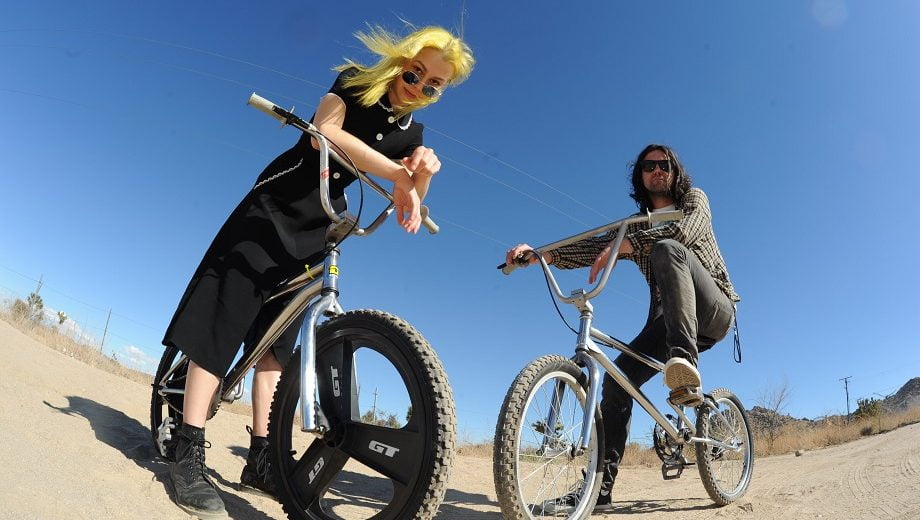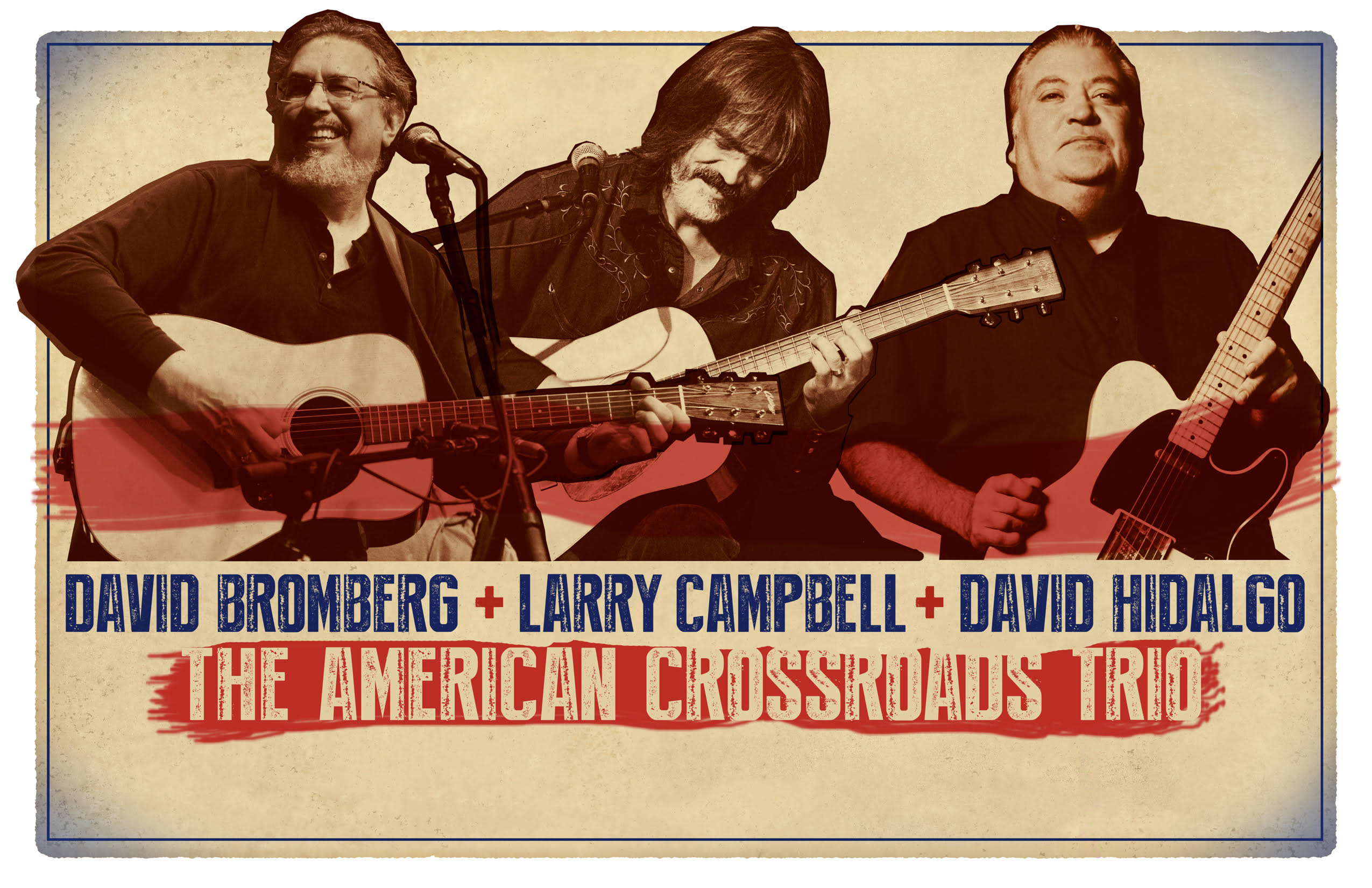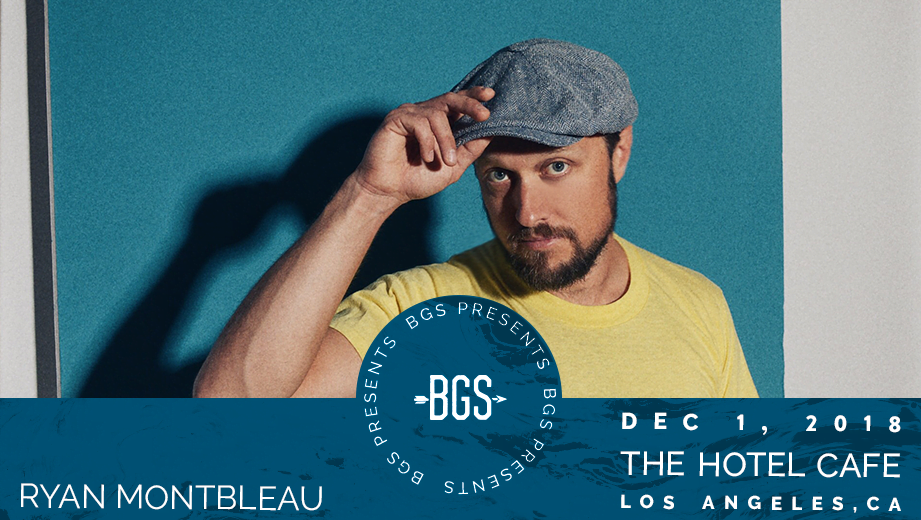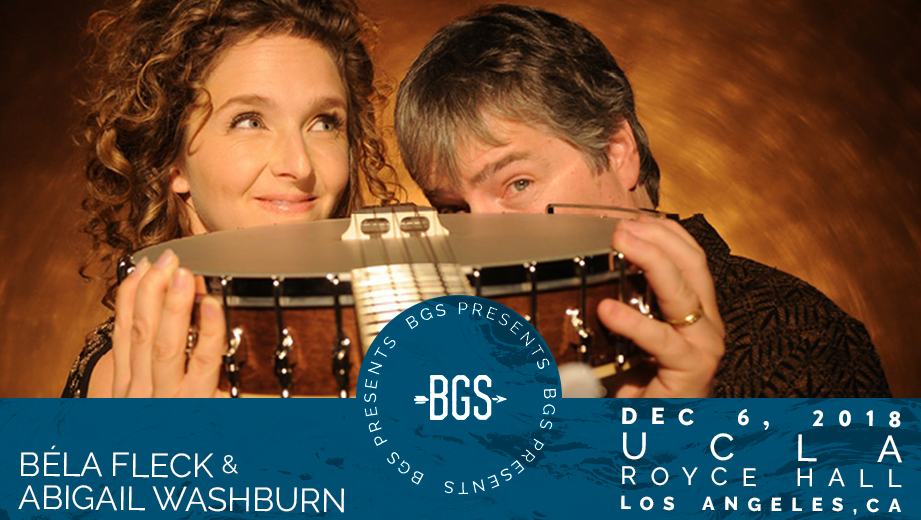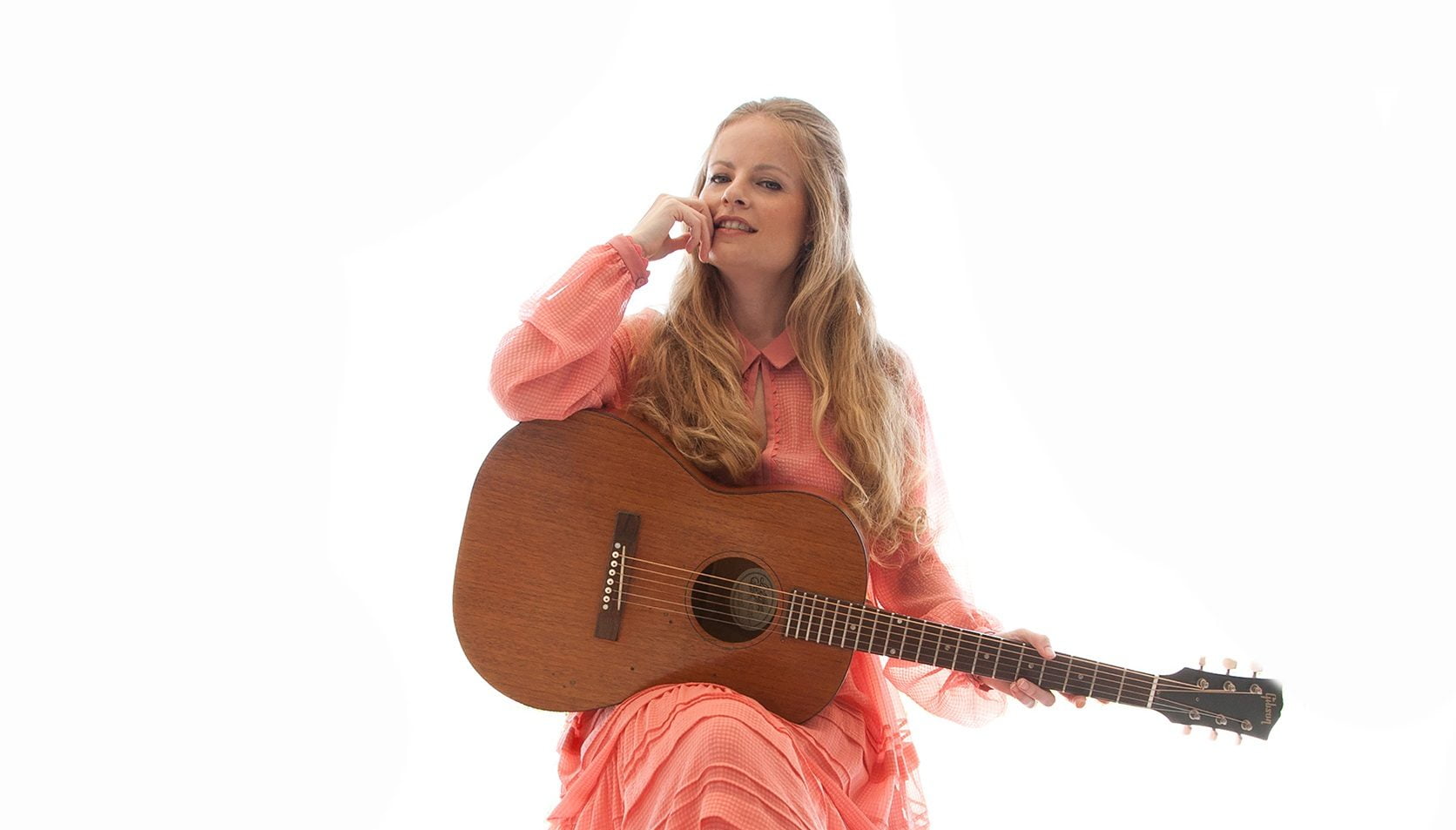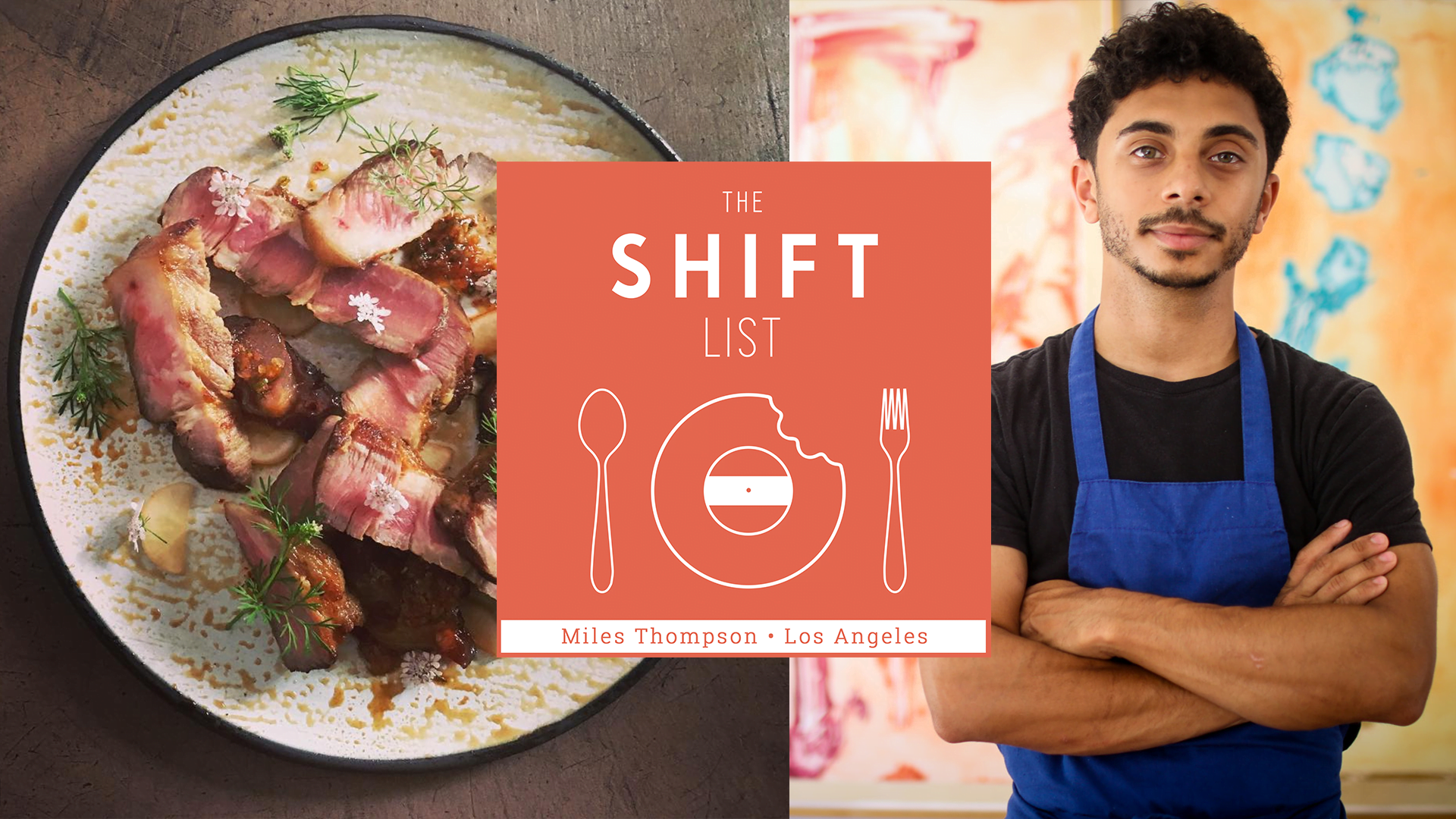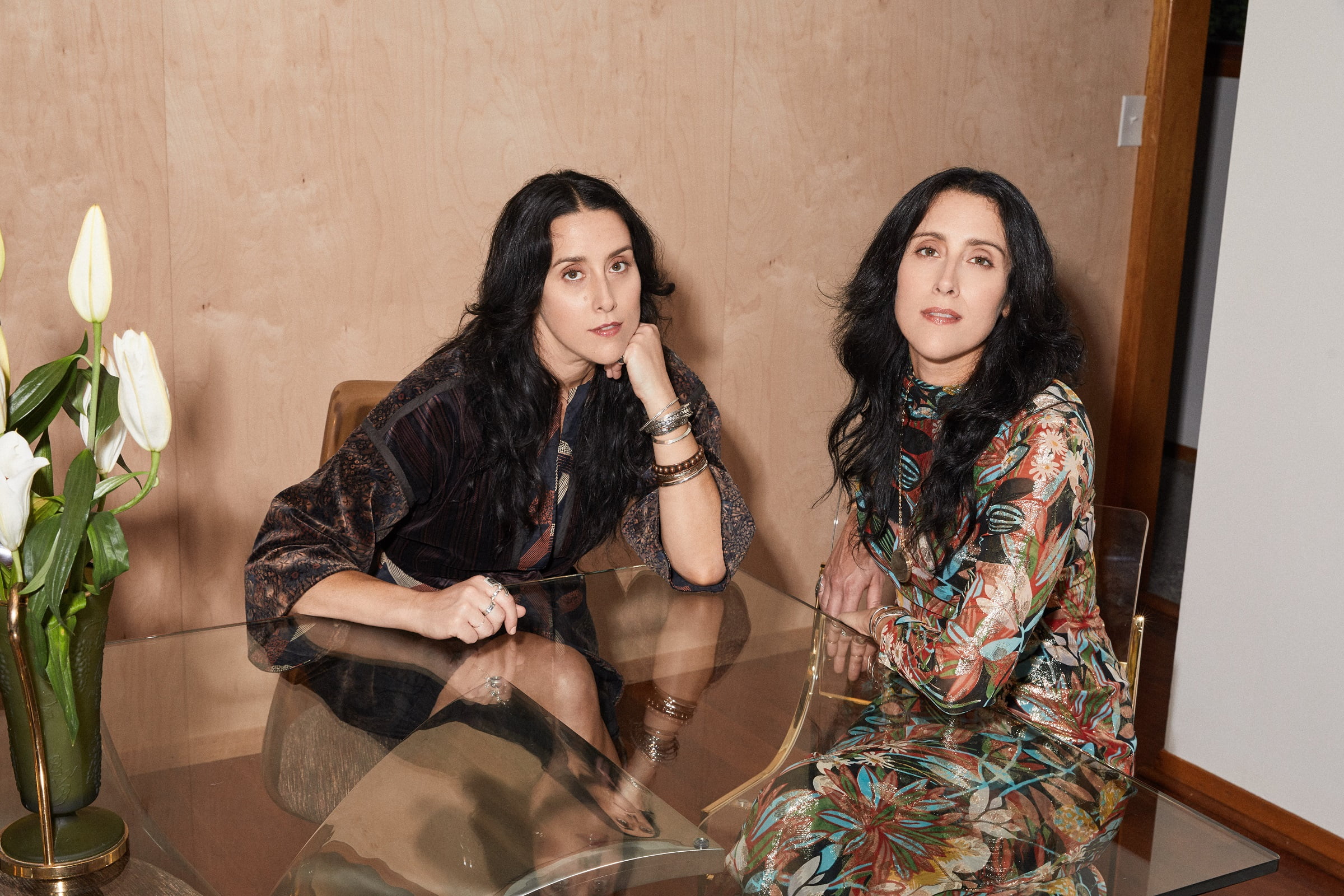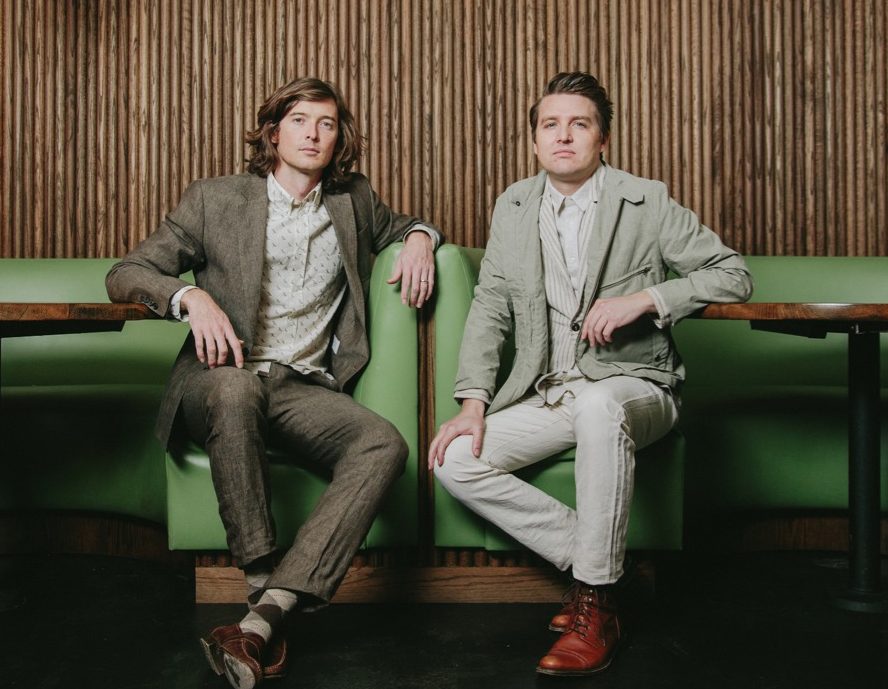Right around the time the clocks switched over from 2018 to 2019, a mysterious ad appeared on a bus bench in Los Angeles, near the intersection of Sunset and Alvarado. It promoted something called the Better Oblivion Community Center, which offers “assisted self-care” and “free human empathy screening,” among other vaguely New Agey services. A telephone number led callers to a voice mail for this strange clinic, and the website included no explanatory text beyond a registration form for a free brochure. It sounds like one of those odd storefronts you’d see in a Los Angeles strip mall offering a hodgepodge of healing techniques and questionable diet regimens—the kind of place Oh No Ross & Carrie might devote an episode or two to exploring and debunking.
It turns out, however, that the Better Oblivion Community Center is not, in fact, a clinic or a church, but a band consisting of two ace singer-songwriters: Conor Oberst, the guy behind Bright Eyes and Desaparecidos, and Phoebe Bridgers, a solo artist who made her debut with 2017’s Stranger in the Alps and more recently was one-third of the indie-rock supergroup Boygenius. The bus ad was, in a roundabout way, an announcement for the duo’s self-titled debut, which they are surprise-releasing this week, following a performance on The Late Show With Stephen Colbert.
“Those words sound nice together, and it rolls off the tongue, even though it’s long,” says Oberst of the duo’s moniker. “More than that, at this moment in time everyone is feeling a little impending doom, like oblivion is just around the corner. But the idea of the community center means that you’re not alone in it. We’re all going through this moment in time together, so maybe it’s not all doom and gloom in there. Maybe there’s some hopefulness in that community concept.”
That’s a lot of weight to pin on an album, but Bridgers and Oberst explore that hope and dread on these songs, from the self-questioning “Didn’t Know What I Was in For” to the self-annihilating “Dylan Thomas.” The music is jittery-nerved folk-rock, full of jangly guitars and jumpy choruses, reflecting the musical personalities of these two musicians: the measured drama of Bridgers’ vocals clashing with the precision of Oberst’s lyrics.
The two met several years ago at a show in Los Angeles. After hearing her play a short set, Oberst asked Bridgers to send him any music she had. They played more shows together, toured together, and even duetted on Stranger in the Alps. After recording their first album as the Better Oblivion Community Center, they decided to keep it under their hats to preserve a bit of the mystery and to buy a bus bench rather than a billboard. “There are no rules anymore,” says Oberst. “This was an experiment. We wanted people to hear the album all at once and take it for what it is. That seemed a lot more fun that the textbook album release cycle.”
Was there a moment when you realized you could do something larger together?
Phoebe Bridgers: We didn’t think about it that hard. I run stuff by my friends, and I write with a lot of my friends. That’s something I really enjoy doing. So I was showing Conor some of my songs, and he was showing me some of his songs. The album just emerged out of that. I don’t think we ever talked about what style it would be. There was one time after one of our shows in Europe when Conor was like, “We should start a band!” But we never talked about it again. So by the time we started writing songs, that wasn’t even really a goal we had in mind. It just naturally became something more.
Conor Oberst: The first song we wrote is the first song on the record, which is “Didn’t Know What I Was in For.” We wrote it not knowing if it was going to be for my record or her record or someone else’s record. But we realized pretty quickly that it was meant to be its own thing. It snowballed from there.
See our ad at the corner of Sunset and Alvarado, or call our hotline (785) 433-5534 pic.twitter.com/EQ0N2ehaRK
— Better Oblivion Community Center (@better_oblivion) January 7, 2019
What was that process like? Was it different from other collaborations you’ve done?
CO: We wrote all of them together with guitars. One of us would have a starting point, a little melody or a line or two of lyrics. Then it’s just bouncing ideas off each other. It was fun for me, because I’ve written songs with different people over the years, but I’ve never done a full record with only one other songwriter, where I was writing everything with one other person. It was an educational experience, because Phoebe has a lot of strengths that I don’t have. She’s a much better singer, and has a much better concept of harmony and melody than I do. I would have some half-baked idea and say to her, “Can you make this better?” Or, “Can you make it sound like a complete thought?” And she would come up with some amazing idea that I would never have on my own.
PB: I actually feel similarly with lyrics. I would be on a rant about something and say, “I want this verse to be about insert theme here.” And Conor would just do it. I would have some idea or be talking about something for a long time, and the next time we’d sit down to write, he would have a cool lyric idea. It was nice to play to each other’s strengths, especially since we’re very different in our processes.
How do you mean?
PB: It takes me forever to finish a song, but it takes Conor a day. I don’t think it’s a bad thing to take forever, but I’m a little too much of a perfectionist. I write from top to bottom, but Conor pushed me not to avoid anything—just write whatever and come back to it later. Don’t get stuck for weeks at a time on something. But I tried to stretch out Conor’s writing time as well. What if we add another verse? Or, what if it was longer or we added a coda? In our differences we found a lot of fun stuff to do.
CO: I definitely tend to do something and just move on. Phoebe was like, “Let’s go back and think about that a little harder. Maybe we can make it better.” And usually we did. That was a great added layer of just… trying harder.
PB: Weirdly, “Dylan Thomas” was the last song we wrote for the album. I had spent fucking fourteen hours in the studio with my band Boygenius, and Conor and I were hanging out getting ready to record. We didn’t even have a plan to put another song on there, but we had some extra time. Conor was like, “You have any more ideas?” I had this weird voice memo that was just a verse and a chorus melody. We ended up writing that song in one day, which is super rare for me.
— Better Oblivion Community Center (@better_oblivion) January 16, 2019
You mentioned “Didn’t Know What I Was in For” as the first song you wrote together. That really sets up this album and introduces some knotty, compelling themes.
CO: The idea is that we all want to do things to help make the world a better place, but a lot of the time it can feel futile—like slacktivism or whatever. “Oh, I’ll do a 5K run and cure cancer today.” I can do these little gestures in my life to bring about a better world, but maybe it doesn’t do anything. I think those feeling are competing inside all of us. Everyone who has a conscience struggles with that. Am I doing enough? Do these actions have any value? The alternative, though, is to do nothing. And if everybody does nothing, then nothing gets better. So maybe it’s better to do these little gestures, even if they don’t feel like they’re ever enough.
PB: I always think about what my friend [and Boygenius bandmate] Julien Baker was telling me, about how she feels this weight of responsibility on social media. She feels this great duty every time she speaks to her fans for it to mean something, for it to matter. Why would you post all this bullshit about playing a festival when there are starving children and LGBTQ teenagers who don’t have home? She’ll talk about spending a half-hour drafting a tweet about something important, then she’ll scroll down and see some really crass, stupid joke that I posted. I think about that a lot. It feels like when you open that box of human empathy, it’s hard to shut. There’s a real burden of responsibility that every human being with a heart should feel, even if you’re doing something that feels so futile.
Does that apply to songwriting? Is writing a song enough?
CO: That’s a struggle that a lot of my friends and a lot of songwriters I know deal with. Phoebe and I were talking about it the other day while listening to the radio. Wow, most songs are about nothing at all. When you hear the lyrics, it’s either so abstract or insider baseball as far as what the writer is trying to say. It starts to evaporate and not mean anything.
PB: I hear the same songwriting tropes in so many songs. If I have to hear one more white guy sing about riding a train…
CO: Hey, careful there!
PB: If I have to hear one more guy talk about ruminations! [Ruminations is the title of Oberst’s recent album.] Trains and whiskey and turpentine. All the shit that doesn’t resonate with anyone anymore—I hear that in so many songs. There’s a fear of writing about nothing, but there’s also a fear of sounding self-important. It’s a never-ending struggle.
CO: I’m hyperaware of sounding too preachy. That’s always the trick—to present ideas in a song but not do it too on the nose or in a way that sounds too heavy-handed.
That seems to be one of the overarching ideas you’re exploring on these songs—trying to feel comfortable in your own skin, in the world, in your craft.
CO: That’s something that art and more specifically music can in their best form provide, that feeling of not feeling so alone. We’re all going through this at this particular moment in time, globally and politically. It can feel terrifying and overwhelming. Lately I find myself going back to records I like, books and movies I like, stuff that provides some context on the human condition, so I don’t feel as adrift and as alone in the world. I don’t know if our music can do that for other people, but that would be a wonderful thing.
PB: We didn’t set out to have a super-political theme on this record by any means. We barely even talked about it, but I think scenes emerge in songs that reflect what you feel or what you’re thinking about. A subtext emerges over time that maybe you didn’t even intend. I think I relate to my songs the more space I get from them, for that reason. I feel more comfortable with songs I wrote two years ago. I was nervous singing about some of that stuff then. I think the same thing will happen with these songs and I’ll figure out more and more what the fuck we’re talking about.
It doesn’t necessarily feel like a political album. It sounds more like it’s coming from a fixed perspective, two people taking in the world at a particular moment in time.
CO: I think you’re always writing from wherever you’re at in your life. We wrote all these songs in the span of a year, so it’s a snapshot of us at that time. Life goes on and things change, but that’s one thing that’s so cool about making a record: It’s a little document of a moment that you get to keep forever. And even if it isn’t as specific as a diary entry, it does encapsulate where you are in your life, where you’re writing from.
Photo credit: Nik Freitas
